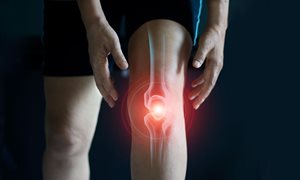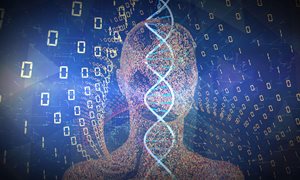
A consortium led by Francesco Battaglia, professor of Neuronal networks of Memory at Radboud University, will use a Gravity grant of 21.9 million from the Ministry of Education, Culture and Science to study how brains work. Other projects that have received a Gravity Grant also involve several researchers from Radboudumc and Radboud University.
Projects that fall under the Gravitation Programme belong to the world top in their research field or have the potential to become so. The grant enables researchers to conduct top scientific research and to cooperate in a multidisciplinary manner. One of the pillars of the program is that several scientific disciplines and universities collaborate. Below are projects in which researchers from Radboudumc and Radboud University are involved:
The Dutch Brain Interfaces Initiative (DBI2) (21.9 mln)
Francesco (F.P.) Battaglia of Radboud University is the main applicant.
To understand how the brain works, we need to understand how each component - from neuron to brain region - relates to the rest of the brain and the outside world. Understanding these interactions is also essential for the development of brain interfaces and new prosthetics and therapies for nervous system disorders. DBI2 develops principles, devices and methods to take these interactions into account in order to understand more about brain disorders, but also about moods, emotions and compulsions.
Radboud University is the lead applicant for 'The Dutch Brain Interfaces Initiative'. The project is led by Francesco Battaglia, Professor of Neuronal Networks of Memory, affiliated with the Faculty of Natural Sciences, Mathematics and Information and the Donders Institute for Brain, Cognition and Behaviour. The researchers receive 21.9 million euros in funding for the next ten years.
IMAGINE!: Viewing and controlling cells in our tissues (20.8 mln)
Anna (A.S.) Akhmanova from Utrecht University is the main applicant. From Radboudumc, Peter Friedl/CellBio, Annemiek van Spriel and Martijn Verdoes are involved in this project.
Cells are the basic units of life. Although cells have been studied extensively, we know very little about how they organize themselves into tissues and how molecular processes within cells enable tissue organization. The IMAGINE! program brings together biologists and technology developers to study and manipulate cells in both healthy and diseased tissue. The program will provide important knowledge and tools for regenerative medicine, the treatment of disease, and the repurposing of existing drugs.
Materials for the quantum age (21.5 mln)
The main applicant is Daniel (D.A.M.) Vanmaekelbergh, Utrecht University.
From Radboud University, several researchers from the Institute for Molecules and Materials are involved, including Misha Katsnelson, Alexey Kimel and Alex Khajetoorians.
Silicon transistors form the basis of our information society. There is a rapidly increasing demand for more powerful forms of computation and information processing. This research aims to provide new materials with stable quantum states that will make existing ways of information processing much more powerful and at the same time more energy efficient.
'We all know that in practice, due to the ever-increasing amounts of data being exchanged, data centers have now become the largest consumers of electricity worldwide,' explains Alexey Kimel, one of the researchers involved in the project. 'It sounds paradoxical, but it seems that according to the fundamental laws of physics, it should be possible to process and store information with almost no energy cost. We are delighted that with the help of the Gravity Program we can explore this paradoxical field of so-called quantum materials. The Institute for Molecules and Materials, with its world-leading expertise and facilities in advanced spectroscopy of quantum matter, will play one of the central roles in the program. We aim to resolve the paradoxes in fundamental physics and explore poorly understood quantum materials. We firmly believe that what seems impossible now will be transformed into a benchmark for future technology.'
Growing up together (22 mln)
Growing up together' is led by Eveline Crone of Erasmus University Rotterdam. Radboudumc is also involved in the project, as part of a consortium of psychologists, sociologists, child psychiatrists and neuroscientists, including Barbara Franke.
The goal of this project is to discover how young people can successfully grow up and contribute to current and future society. The researchers are studying how young people develop in terms of education, social networks, and social norms. Central to this is the development of self-regulation such as coping with short-term and long-term goals and relationships between self and others. The project integrates neuroscience with individual and environmental factors in sophisticated models that have both explanatory and predictive value for adolescents and young adults.
About the Gravity Program
The Gravitation Programme is implemented by NWO on behalf of the Ministry of Education, Culture and Science. NWO received forty applications this round, seven of which were awarded. Together they will receive over 142 million euros in funding.
Minister Robbert Dijkgraaf (OCW): 'To conduct top international research, peace and quiet are essential. With this substantial boost we are offering long-term prospects and adequate funding to collaborating excellent research groups. Researchers from these scientific consortia, who are among the world's best in their field, can use Zwaartekracht to work on groundbreaking research.'
-
Want to know more about these subjects? Click on the buttons below for more news.
Related news items

Meniscus prosthesis Atro Medical receives 2.5 million EU grant
10 June 2022 The European Commission is providing a 2.5 million euro grant to ATRO Medical, spin-off of The Radboudumc and DSM, for the accelerated development of their artificial meniscus. go to page
Enzyre works towards cheaper care with integrated photonics
9 June 2022 Integrated photonics is a technology that will be decisive in the coming years in terms of innovative solutions in healthcare. go to page
More accurate surgery with the Anatomy Projector
30 May 2022The Anatomy Projector, developed at the Radboudumc, allows surgeons to operate much more accurately with projected augmented reality.
go to page
Improved AI will boost cancer research and cancer care Geert Litjens receives ERC Starting Grant
13 January 2022 Geert Litjens from Radboud university medical center has received a European Research Council (ERC) Starting Grant. go to page
Understanding fluctuation variation in cognitive abilities may provide insight into lifelong learning Rogier Kievit recieves ERC Starting Grant
13 January 2022 Rogier Kievit from Radboud university medical center has received a European Research Council (ERC) Starting Grant. go to page
